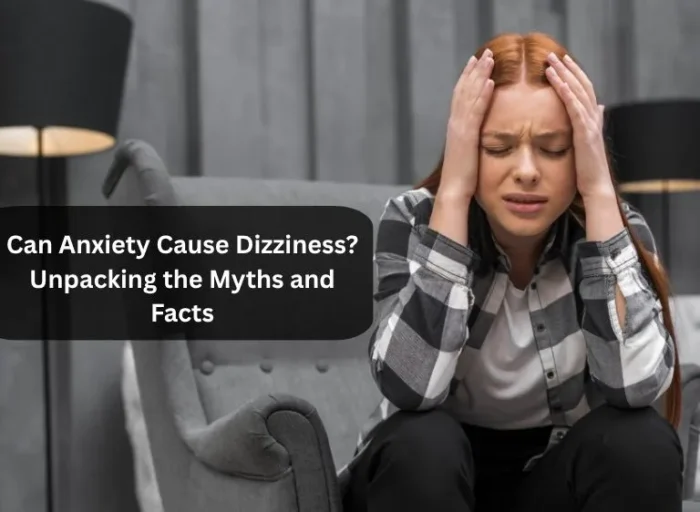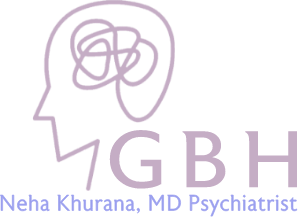
- November 18, 2025
Can Anxiety Cause Dizziness? Unpacking the Myths and Facts
Anxiety can indeed cause dizziness, a symptom that often blurs the line between physical and mental health. Understanding this link between mental health and physical symptoms is crucial for effective management. In this article, we will explore symptoms, causes, diagnostic methods, and relief techniques for dizziness linked to anxiety.
What Is Dizziness?
Dizziness is a sensation of feeling faint, woozy, or unsteady. It differs from lightheadedness, a feeling that one might faint, and vertigo, which involves a spinning sensation. Dizziness can have both physical and psychological causes. When related to anxiety, it often presents as a result of psychosomatic reactions, where the body physically responds to anxiety-triggers.
What Is Anxiety?
Anxiety is not just an emotion; it’s a biological response that can manifest physical symptoms. Types of anxiety that may trigger dizziness include:
- Generalized Anxiety Disorder
- Panic Disorder
- Health Anxiety
- Social Anxiety
One Conversation Can Change Everything! Consult Dr. Neha Khurana for Anxiety Treatment
How Anxiety Causes Dizziness: The Science
The fight-or-flight response initiated by anxiety leads to physiological changes such as hyperventilation, which reduces oxygen to the brain. Muscle tension can affect the inner ear, altering balance. Blood pressure changes and chronic stress can similarly impact the vestibular system, contributing to dizziness.
Related Symptoms That May Occur With Dizziness
- Nausea
- Headaches
- Chest tightness
- Shortness of breath
- Fatigue or brain fog
- Blurred vision
- Sweating or palpitations
When Is Dizziness From Anxiety vs. Another Condition?
Signs indicating dizziness might not be from anxiety include a new onset without a history of anxiety, severe spinning sensations, hearing loss, or ear pain. Medical conditions to consider include inner ear issues, low blood pressure, dehydration, neurological disorders, and vision issues.
How to Manage and Stop Anxiety-Induced Dizziness
A. Immediate Coping Strategies
- Deep breathing exercises
- Grounding techniques
- Rehydration
- Sitting or lying down safely
B. Long-Term Management
- Cognitive Behavioral Therapy (CBT)
- Mindfulness and meditation
- Medication (SSRIs, Benzodiazepines—short-term only)
- Exercise and sleep routines
- Reducing caffeine and stimulants
When to See a Doctor
Persistent dizziness, new or worsening symptoms, or dizziness accompanied by neurological signs should prompt a visit to a psychiatric provider. Ruling out physical health conditions is essential and typically involves both primary care and mental health professionals.
Conclusion
Dizziness is a misunderstood yet common symptom of anxiety. It’s a real, physical experience that is treatable with proper diagnosis and professional help. Readers are encouraged to seek evaluation if symptoms persist or worsen.
FAQs
Can anxiety cause dizziness every day?
Yes. Persistent anxiety can trigger daily dizziness due to stress hormones, hyperventilation, and muscle tension affecting balance and perception.
How long does anxiety dizziness last?
It can last minutes to hours, sometimes longer, depending on stress levels, triggers, breathing patterns, and how quickly anxiety reduces.
Can anxiety dizziness feel like vertigo?
Yes. Anxiety dizziness can mimic vertigo sensations like spinning, swaying, or imbalance, even though the inner ear isn’t actually affected.
Can dizziness be the only symptom of anxiety?
Yes. Some people experience dizziness alone from anxiety without other symptoms, especially during chronic stress or subtle, ongoing worry.
How can I tell if my dizziness is anxiety or something else?
Anxiety dizziness often appears during stress, improves with calming, and lacks ear symptoms. Persistent, worsening, or severe episodes need evaluation.
What helps with anxiety dizziness immediately?
Slow breathing, grounding exercises, hydration, fresh air, reducing hyperventilation, and relaxing muscles can quickly ease anxiety-related dizziness.
